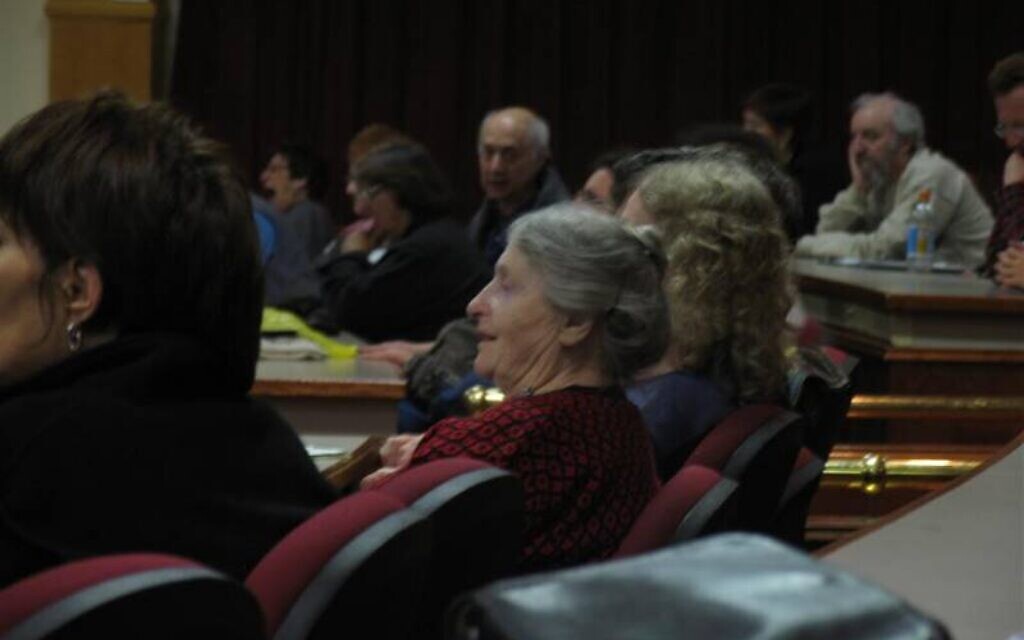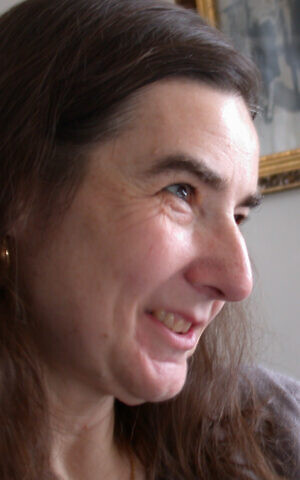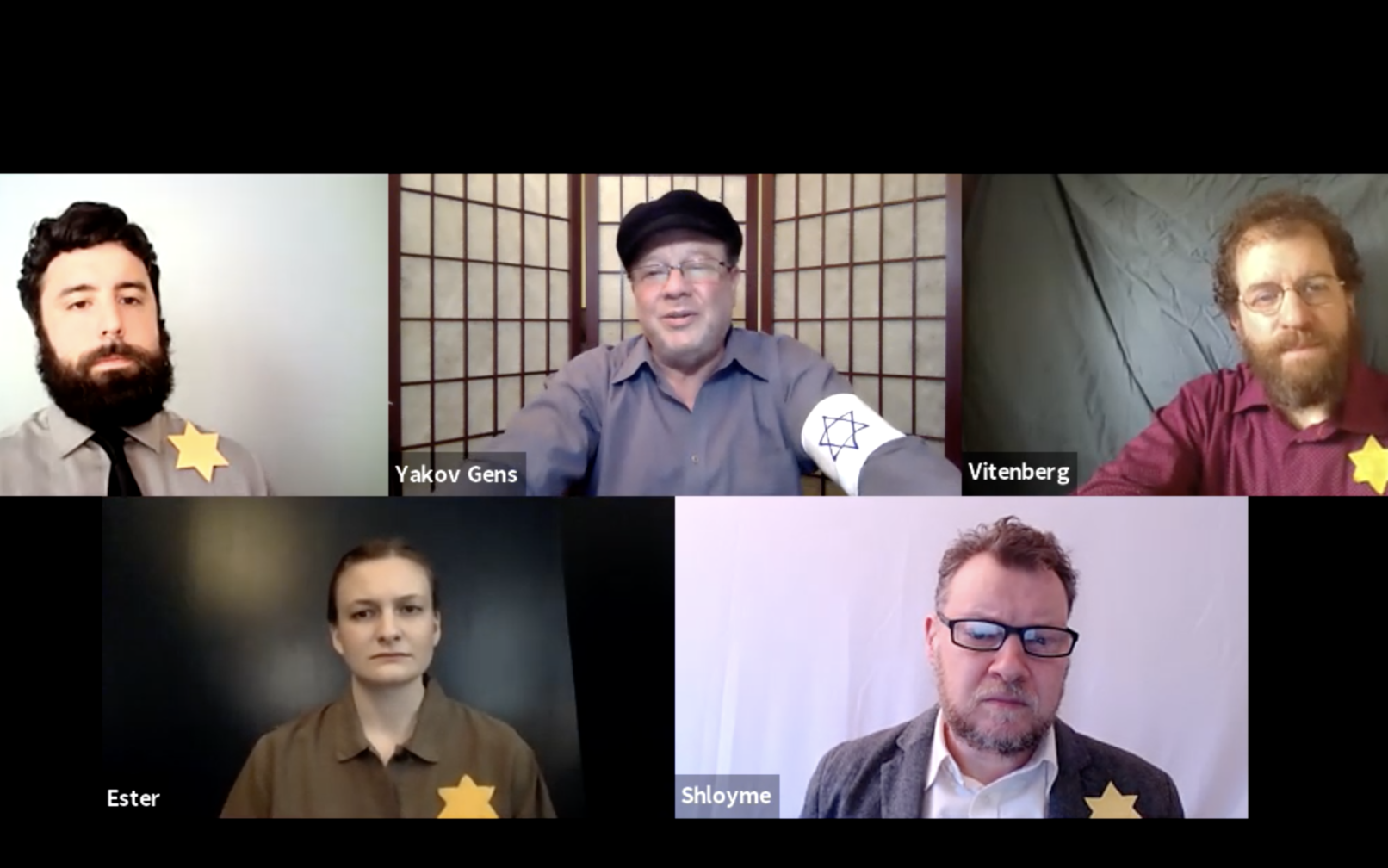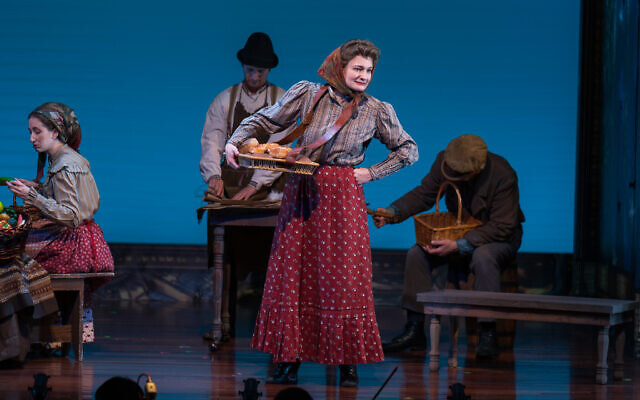The National Yiddish Theatre Folksbiene kicks off a run dedicated to overlooked female playwrights with renowned Chava Rosenfarb’s ‘The Bird of the Ghetto,’ running April 19-22

NEW YORK — Not long ago, Sabina Brukner, the literary manager at the National Yiddish Theatre Folksbiene (NYTF), was tasked with modernizing some old records. The NYTF, as we have kvelled about in the past, is the oldest consecutively producing theater company in the United States. When your files go back to 1915, there’s a lot of material. So the time was right for a spreadsheet listing every production the company had staged, all in one place. When Brukner completed the job, she noticed something: there were “few, if any” plays written by women.

Brukner is quick to asterisk herself as she lays this out: There had been monologues, and memoirs, contributions for revues, and maybe one full play, but when it came to center stage “literary dramatic writers,” it was basically bupkis.
Rather than race into the office, slam down her notes and decry the injustice, she did more research. Considering the opportunities for women writers in decades past, were there even any Yiddish-language plays for the Folksbiene to produce? To Brukner’s satisfaction, the answer was yes.
And thus begat the NYTF’s Yiddish Women Playwrights Festival, beginning with a staged reading of Chava Rosenfarb’s “The Bird of the Ghetto,” streaming (for free!) April 19-22 at the NYTF’s website.
“Chava Rosenfarb is considered one of the greatest Yiddish writers of the postwar period,” Brukner says via Zoom. “She is well known for her novels, but this is the only play she wrote.”
Set in the Vilna Ghetto, it juxtaposes two figures, Yacov Gens of the Judenrat — the Nazi-appointed Jewish council tasked with managing ghetto logistics — and Itsik Vitenberg, the leader of the Partisans. (Throw Vitenberg’s name into Google and the top return is a recording of a folk song about him on Yad Vashem’s website, which Brukner tells me will be included in the staged reading.) The play dramatizes the struggle of the wider community and resistance, leading to Vitenberg’s eventual martyrdom.
Though Rosenfarb, later deported to multiple concentration camps, was not from Vilna, Brukner says “her experience in the Łódź Ghetto informed her writing of Vilna.”
Though the play had been produced in Hebrew and English, it has never been done in Yiddish, which is particularly sweet for Brukner, a life-long Yiddishist who has a personal connection to the playwright. Born in France and raised in New York City, her parents were from Poland, and her mother knew Rosenfarb as a child. Nearly 40 years later, Brukner had the honor of hosting Rosenfarb at a Yiddish summer camp (“KlezKamp!”) a few years before she passed away.
“I made that connection to my mother with her,” she says — and, yes, she made that connection in Yiddish. “I did my best, but it was intimidating. I think she appreciated it.”
A handful of female playwrights
With pandemic-related shutdowns, the timeline for future staged readings, and, one hopes, eventual full productions, is not set in stone. However we do know what’s on deck.
Brukner’s sleuthing for work went the long way. She hit the database of the Yiddish Book Center and looked for dramatic work, then went one-by-one looking for female names. In addition to “The Bird of the Ghetto,” she found three others.

“All Windows Face the Sun” is a children’s play, partially in verse, about a magic tower from which children in the present can view historical tragedies that befell Jews in the past. It was written by Kadya Molodowsky (born in Belarus in 1894) who is best known as a poet.
“It was written before World War II,” Brukner says, “but after the imposition of the Nuremberg Laws, and it hopes, ironically, for a future without such tragedies.”
It’s another personal connection for Brukner, as Molodowsky (“whose work I love”) came and read at the Yiddish camp she attended as a child in the late 1960s.
“The Abandoned Woman” by Marie Lerner is believed to be the first Yiddish play by a woman playwright that was ever produced, back in 1881. It’s the oldest in the series and “a bit of a melodrama.”
It’s about a young woman who has an arranged marriage — but she is in love with someone else, and this leads to “complications.”
“It examines the life of women in Jewish society under rabbinic society, but since she is trying to marry someone she loves it has some early feminist themes,” Brukner says.

Finally there’s “In The Stormy Days,” by Miriam Karpalov, who was a very prolific and successful writer of novels and short stories. “In The Stormy Days,” from 1909, was, in Brukner’s words, “a hit.”
“It was put on not long after the 1905 Revolution, and it explores the lives of women in Russia, Jewish revolutionaries, the suitors, the Russians in town. It’s set at the same time as ‘Fiddler on the Roof’ and even has a matchmaker,” Brukner says.
The reading will be well-timed, as Brukner says that Miriam Karpalov is having a bit of a “moment” in Yiddish circles, with a new translation of her humorous novel “Diary of a Lonely Girl” receiving a lot of attention.
“It’s really a fantastic initiative, and I applaud Sabina and the Folksbiene,” says Rokhl Kafrissen, a female Yiddish playwright not from the old country, but from the here and now.
Though the friend she usually attends all Folksbiene productions with is currently in San Fransisco because of the pandemic, Kafrissen says she’s very excited for the two of them to watch the streamed reading of Chava Rosenfarb’s “The Bird of the Ghetto” simultaneously.
“We’ll be together again, even on other sides of the country,” she says.
As reported by The Times of Israel
